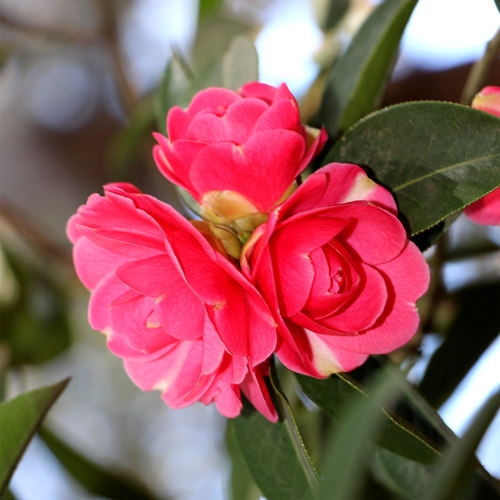
Pu'er Tea: The Earthy Elixir of Yunnan

In the remote mountains of Yunnan, China, a unique tea tradition has been cultivated for over a thousand years. This tea, known as Pu'er, is prized for its complex flavors, health benefits, and cultural significance. In this article, we will explore the history, culture, and science behind Pu'er tea, and discover why it has become one of the world's most sought-after beverages.
The Origins of Pu'er Tea
The story of Pu'er tea begins in the ancient tea forests of Yunnan, where wild tea trees have grown for centuries. The leaves of these trees were harvested by local people and used for medicinal purposes, as well as for making tea. Over time, the art of tea-making evolved, and a unique style of tea known as Pu'er emerged.
Pu'er tea is made from the leaves of Camellia sinensis, the tea plant, which is grown in the high-altitude mountain regions of Yunnan. Unlike other teas, which are usually consumed soon after they are harvested and processed, Pu'er tea is aged for years or even decades before it is consumed. This aging process gives Pu'er tea its distinctive earthy flavor and aroma, as well as its health benefits.
The Culture of Pu'er Tea
In Yunnan, Pu'er tea is more than just a beverage – it is a way of life. The people of Yunnan have a deep respect andappreciation for Pu'er tea, and it is an important part of their cultural heritage. Tea houses and shops can be found throughout the region, where people gather to drink, share, and trade Pu'er tea.
One of the most unique aspects of Pu'er tea culture is the concept of tea aging. Pu'er tea is often stored in clay jars or bamboo baskets, where it is allowed to ferment and age over time. The longer the tea is aged, the more valuable it becomes, and some Pu'er teas can fetch prices of thousands of dollars per kilogram.
Pu'er tea is also an important part of traditional Chinese medicine, and is believed to have a range of health benefits. It is said to aid digestion, lower cholesterol, and boost the immune system, among other things. Many people in Yunnan drink Pu'er tea regularly as a way to maintain their health and well-being.
The Science of Pu'er Tea
In recent years, scientists have begun to study the health benefits of Pu'er tea, and have uncovered some interesting findings. One study found that Pu'er tea contains high levels of antioxidants, which can help protect against cancer, heart disease, and other chronic illnesses. Another study found that Pu'er tea may help lower blood sugar levels in people with diabetes.
The unique aging process of Pu'er tea also plays a role in its health benefits. During the fermentation process, beneficial bacteria and fungi develop in the tea, which can help improve gut health and digestion. Additionally,the aging process can break down some of the tannins in the tea, making it easier to digest and less likely to cause stomach discomfort.
The Future of Pu'er Tea
As the world becomes more interested in natural and traditional remedies for health and wellness, Pu'er tea is gaining popularity beyond Yunnan. In recent years, Pu'er tea has been exported to countries such as Japan, Korea, and the United States, where it is being embraced by tea enthusiasts and health-conscious consumers.
In conclusion, Pu'er tea is more than just a beverage – it is a cultural, scientific, and environmental treasure of Yunnan, China. Its earthy flavor, health benefits, and rich history make it a fascinating and valuable addition to the world of tea. As we continue to discover the wonders of Pu'er tea, let us also remember to respect and protect the natural resources and traditionsof Yunnan that make it possible.
Photo Credit: unsplash
If there's any copyright issue involved, please contact us to delete.



